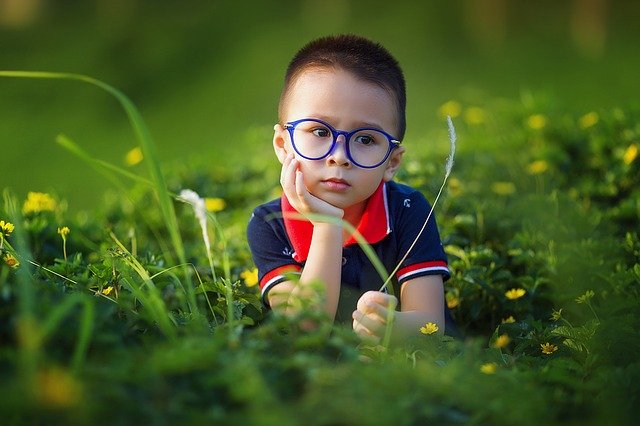Vision is an important part of childhood development. It helps kids learn to process information and practice hand-eye coordination. Vision disorders can even affect a kid’s reading ability, which also influences their academic performance. As parents and teachers, it is vital that we keep our children’s vision in top condition. These tips offer you some helpful ways to preserve your child’s vision.
Vision disorders can even affect a kid’s reading ability, which also influences their academic performance. As parents and teachers, it is vital that we keep our children’s vision in top condition. These tips offer you some helpful ways to preserve your child’s vision.
Limit Screen Time
Children should limit their exposure to screens for at least two hours a day, according to the American Academy of Ophthalmology and American Academy of Pediatrics. Watching TV, movies or playing video games can cause eye strain, which can lead to dry eyes, headaches and blurred vision. Additionally, children who spend too much time looking at screens may get less sleep than those who don’t use screens as much.
Regular Eye Exam
The American Optometric Association recommends that children visit the eye doctor by age 3. The purpose of this visit is to check for any signs of eye problems, such as refractive error (nearsightedness or farsightedness), strabismus (misalignment of the eyes), or amblyopia (lazy eye).
Eat A Healthy Diet
A diet rich in fruits, vegetables and fish will help provide the vitamins and minerals your child needs to keep her eyes healthy. Those who eat a well-balanced diet are less likely to develop conditions like nearsightedness and farsightedness, which can cause blurry vision.
Use Safety Glasses
Children should wear glasses for kids when they’re doing anything that could potentially damage their eyes, including playing sports, cooking or using power tools. The American Academy of Ophthalmology recommends kids wear safety glasses while they’re doing any activity that could result in a foreign body entering their eye — such as blowing bubbles, swinging a bat or riding a bike — because they don’t yet have the skills or experience to avoid such hazards on their own.
Avoid Rubbing Eyes
Children often rub their eyes because they have an itch or something in their eye. But rubbing the eyes can cause them to dry out and even damage the cornea. So make sure that you tell your child not to rub his or her eyes and to use over-the-counter eye drops if needed.
Encourage Eye Exercises
Eye exercises are a great way to help your child develop good eyesight habits. Simple activities such as blinking, focusing and moving the eyes can help improve your child’s eyesight and overall health. Practice these exercises with your child every day and make sure they’re part of their daily routine.
Give Your Eyes a Break
The American Optometric Association recommends giving your eyes at least 20 minutes of rest every hour. This will help them recover from any strain caused by reading, watching TV or playing video games. You should also use eye drops before and after these activities to relieve the dryness in your eyes.
Get Enough Sleep
Studies show that kids who sleep less than five hours a night are twice as likely to have myopia — nearsightedness — at age 12 compared with those who get more sleep. A lack of sleep may interfere with your child’s ability to see clearly when he wakes up in the morning because it disrupts the production of melatonin, a hormone that regulates circadian rhythms and helps maintain normal sleep patterns.
Conclusion
Parents and teachers should work together to ensure that children get the proper amount of sleep at night, use glasses, eat dinner early enough to reduce the risk of eye strain from using computers past their bedtime, and learn how to properly rest their eyes away from screens. By following these tips, everyone can keep their vision healthy for years to come.
Related Posts: